Government has come under fire for its controversial Protection of Information Bill, which some media have dubbed the Secrecy Bill.
Hundreds of civil society organisations and a number of high-profile individuals have now come forward in support of the Right2Know campaign, which calls for the Bill to be redrafted so that it does not hinder whistleblowers and the public’s access to information.
Here, in their own words, and ahead of the campaign’s launch, are some reasons why prominent South Africans have chosen to join the campaign, and their thoughts about what the Bill could mean for media freedom.
Archbishop Desmond Tutu, cleric and Nobel laureate
 “We don’t want to spoil a good thing. Now we are bringing something that is divisive and we are now getting negative reporting internationally. Most South Africans are united in their view about the negative effect of the media tribunal and the new Act, and I just hope we will have the good sense not to pursue these.” — The Sowetan
“We don’t want to spoil a good thing. Now we are bringing something that is divisive and we are now getting negative reporting internationally. Most South Africans are united in their view about the negative effect of the media tribunal and the new Act, and I just hope we will have the good sense not to pursue these.” — The Sowetan
Nadine Gordimer, writer and Nobel laureate
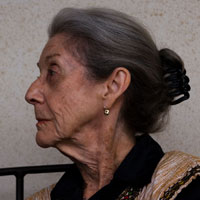 “Our protest is an action undertaken by South Africans for all South Africans, committing ourselves to a demand for our free country: freedom of thought expressed, freedom of dialogue, freedom from fear of the truth about ourselves … This takes us back to some of the aspects of apartheid. It threatens the basis of democratic freedom. Freedom of expression, along with the vote, is the basis of democracy. That is the crux of it.” — The Guardian
“Our protest is an action undertaken by South Africans for all South Africans, committing ourselves to a demand for our free country: freedom of thought expressed, freedom of dialogue, freedom from fear of the truth about ourselves … This takes us back to some of the aspects of apartheid. It threatens the basis of democratic freedom. Freedom of expression, along with the vote, is the basis of democracy. That is the crux of it.” — The Guardian
Zakes Mda, novelist and playwright
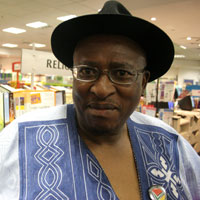 “Nothing scares me more than ‘national interest’. It is a nebulous notion defined by a political party to serve its interests. ‘National interest’ is in reality ruling party interest … If we don’t act now, in five years time we will look back at this point in the development of our democracy and wonder why we let it happen.” — SA Pen
“Nothing scares me more than ‘national interest’. It is a nebulous notion defined by a political party to serve its interests. ‘National interest’ is in reality ruling party interest … If we don’t act now, in five years time we will look back at this point in the development of our democracy and wonder why we let it happen.” — SA Pen
Max Price, vice-chancellor of the University of Cape Town
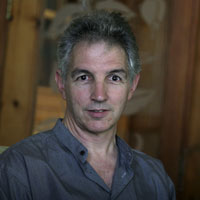 “The Protection of Information Bill touches on issues central to the functioning of a democratic society, such as security, government accountability, media freedom and responsibility. It is a debate in which the university must intervene because the consequences of restricted access to information impinge profoundly on the university’s ability to do research and analyse public policy.” — In a statement on behalf of the University of Cape Town
“The Protection of Information Bill touches on issues central to the functioning of a democratic society, such as security, government accountability, media freedom and responsibility. It is a debate in which the university must intervene because the consequences of restricted access to information impinge profoundly on the university’s ability to do research and analyse public policy.” — In a statement on behalf of the University of Cape Town
Breyten Breytenbach, writer and painter
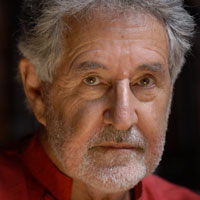 “What a shame that the spooks and other swanky ANC swines should thus be relieving themselves on the moral high ground of the liberation struggle! And so the cadres and senior comrades can no longer camouflage the stench of their thieving and gorging? So, we the people are not to take notice of the ‘progressive thought’ perfume emanating from the hunkered positions of the deployed and transformed ones and their cronies? And censorship and silence are to be imposed in the name of a majority ‘culture’ and ‘mandate’? ‘Eat shit — a thousand flies can’t be wrong!’ “
“What a shame that the spooks and other swanky ANC swines should thus be relieving themselves on the moral high ground of the liberation struggle! And so the cadres and senior comrades can no longer camouflage the stench of their thieving and gorging? So, we the people are not to take notice of the ‘progressive thought’ perfume emanating from the hunkered positions of the deployed and transformed ones and their cronies? And censorship and silence are to be imposed in the name of a majority ‘culture’ and ‘mandate’? ‘Eat shit — a thousand flies can’t be wrong!’ “
Zackie Achmat, activist and founder of the Treatment Action Campaign
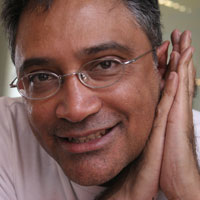 “The media does not give real voice to the vulnerable and marginalised in society but at times they provide the only voices raised in defense of people whose pensions are stolen, whose children die in our hospitals, of people whose water has been poisoned by the mining industry, workers left unpaid by unscrupulous bosses and workers who die in accidents.” — Writing Rights
“The media does not give real voice to the vulnerable and marginalised in society but at times they provide the only voices raised in defense of people whose pensions are stolen, whose children die in our hospitals, of people whose water has been poisoned by the mining industry, workers left unpaid by unscrupulous bosses and workers who die in accidents.” — Writing Rights
Pieter-Dirk Uys, satirist
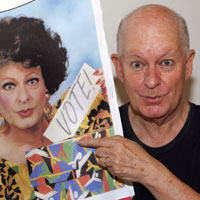 “Skatties, if we in the former mighty monolith of National Party power failed to muzzle the mutts of message, how much more ridiculous will it be to try to do the same in this 21st century with its internet highways and byways? So my humble advice to the media is this: stop panicking. Victims never win.” — Business Day
“Skatties, if we in the former mighty monolith of National Party power failed to muzzle the mutts of message, how much more ridiculous will it be to try to do the same in this 21st century with its internet highways and byways? So my humble advice to the media is this: stop panicking. Victims never win.” — Business Day
Mary Burton, Black Sash trustee
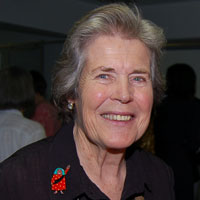 “The appeal mechanism for having information declassified is onerous, and the appeal must be directed to the minister whose department classified it. The penalties for disclosing such information are too severe, posing a major obstacle for individuals and publications seeking to discover and expose any failures or wrongdoing on the part of the state.” — Black Sash
“The appeal mechanism for having information declassified is onerous, and the appeal must be directed to the minister whose department classified it. The penalties for disclosing such information are too severe, posing a major obstacle for individuals and publications seeking to discover and expose any failures or wrongdoing on the part of the state.” — Black Sash
Andre Brink, novelist and Professor of English
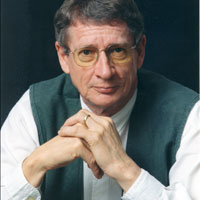 “The similarities between what happened 23 years ago and now are just sickening. It is not just a matter of anticipating the possibility of things going wrong. We know they have gone wrong [in the past], and almost certainly they will this time, because the evil intentions behind this Bill are very clear for everybody to see.” — Daily Dispatch
“The similarities between what happened 23 years ago and now are just sickening. It is not just a matter of anticipating the possibility of things going wrong. We know they have gone wrong [in the past], and almost certainly they will this time, because the evil intentions behind this Bill are very clear for everybody to see.” — Daily Dispatch
Pierre De Vos, constitutional law expert
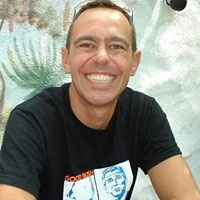 “The problems with the Bill go far beyond its individual clauses. In my opinion, a mere tinkering with particular clauses of the Bill will not render an otherwise unconstitutional Bill constitutionally valid. It will only make a fundamentally draconian and oppressive piece of legislation politically slightly more palatable without addressing the problems with the basic premise of the Bill.” — Constitutionally Speaking
“The problems with the Bill go far beyond its individual clauses. In my opinion, a mere tinkering with particular clauses of the Bill will not render an otherwise unconstitutional Bill constitutionally valid. It will only make a fundamentally draconian and oppressive piece of legislation politically slightly more palatable without addressing the problems with the basic premise of the Bill.” — Constitutionally Speaking
If you would like to join the campaign, go to the website. The Gauteng launch of the Right2Know campaign takes place at Wits University on Wednesday, September 15.